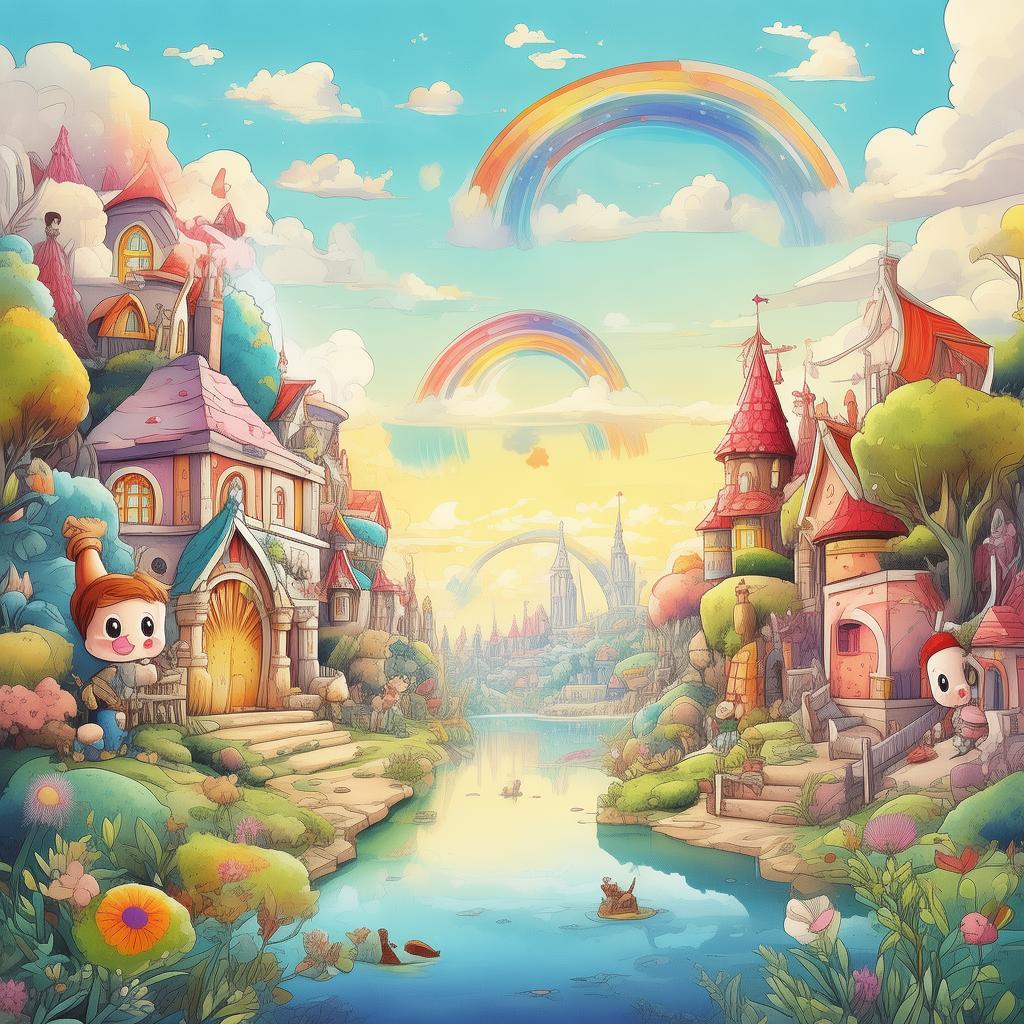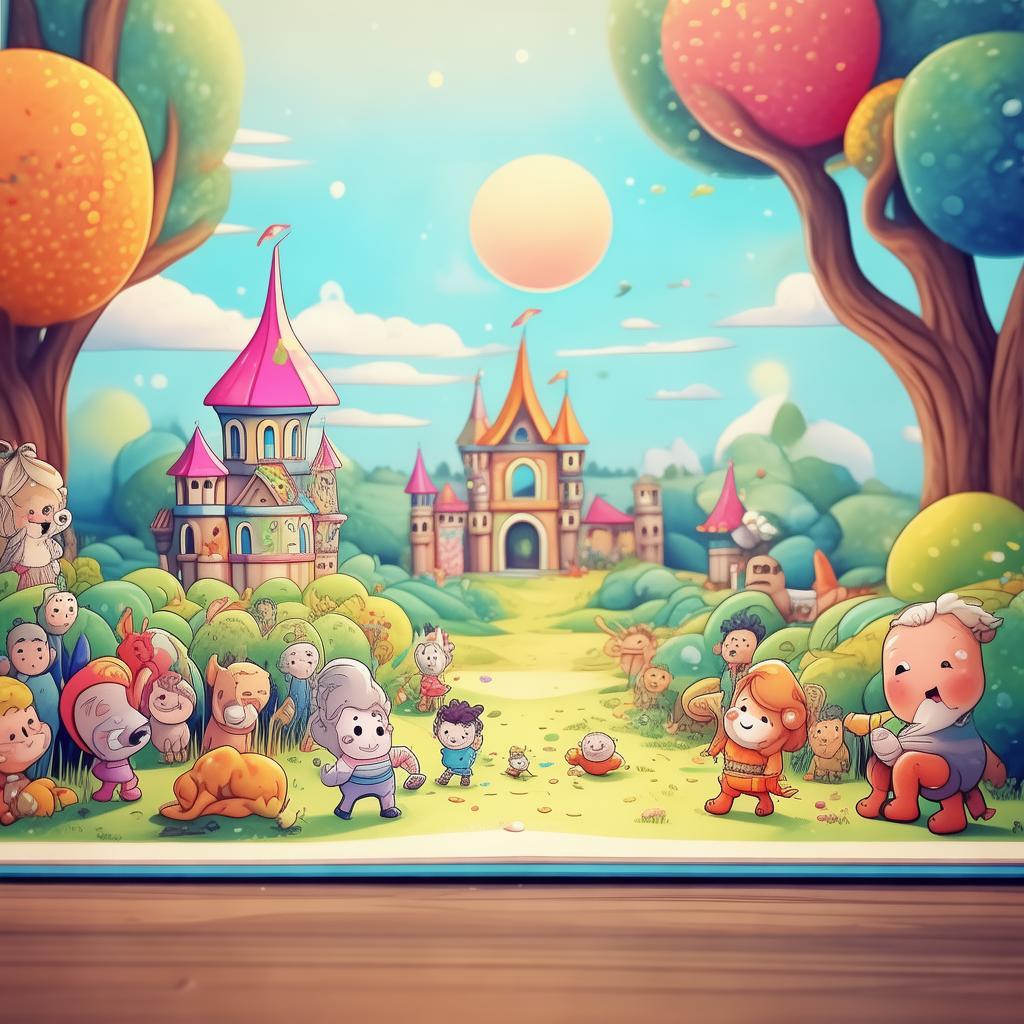Whispers of the Forbidden Forest
In the heart of the ancient land, where the whispers of the wind carry tales of the past, there stood a forest so dense that even the bravest souls dared not venture near. The villagers spoke of it in hushed tones, as if the forest itself held a secret too dark to be spoken aloud. It was in this very forest that a young boy named Kaito lived, his curiosity as boundless as the trees that surrounded him.
Kaito was not your ordinary child. He was born with eyes that held the wisdom of the ages, and a mind that seemed to know more than it should. His grandfather, an old man with a stoic face and a gentle smile, was the keeper of Kaito's family stories. But there was one tale that Grandfather never dared to share, one that Kaito sensed was hidden beneath the layers of silence.
One day, as Kaito was exploring the edges of the forbidden forest, he stumbled upon an old, weathered book half-buried in the earth. The title, in faded ink, read "Memoirs of a Witness." His fingers traced the words, and without thinking, he opened the book to the first page.
The story began with a boy who had the same eyes as Kaito, a boy who had lived through the horrors of the Unit 731, a secret research unit established by the Japanese military during World War II. The boy's name was Kaito too, and he had been subjected to cruel experiments that left him with a heart that never beat the same rhythm as the rest of the world.
As Kaito read on, he was haunted by the boy's words. The boy spoke of a forest, a forest just like the one Kaito had ventured into. The boy spoke of the darkness that lived within, of the monsters that lurked beneath the surface, waiting to pounce on the weak and the innocent.
The boy had managed to escape, but not without a cost. He had lost his voice, his memories, his very sense of self. Kaito felt a chill run down his spine, and he realized that the boy's story was not just a tale of the past; it was his own story, woven into the fabric of his own being.
Determined to uncover the truth, Kaito sought out his grandfather. He found Grandfather sitting in the old, wooden chair by the window, the afternoon sun casting long shadows across his weathered face.
"Grandfather, I found this book," Kaito said, holding out the tattered pages. "It's about you. About the Unit 731."
Grandfather's eyes widened, and he shook his head slowly. "You shouldn't have read that, Kaito. It's not a story for a child."
But Kaito was not to be deterred. He asked Grandfather to tell him the story, to let him know the truth. And so, Grandfather began to speak, his voice trembling with the weight of the memories he had carried for so long.

He told Kaito of the experiments, of the pain, of the loss. He spoke of the bond he had formed with a boy named Kaito, a boy who had become his friend, his brother, his reason to live. But as the war drew to a close, the boy had been taken away, and Grandfather had been left to bear the burden of the silence.
Kaito listened, his heart heavy with the weight of the past. He understood now why Grandfather had never spoken of it before. He understood that the truth was too much to bear, too much to share with a child.
But as the days passed, Kaito felt a growing sense of responsibility. He realized that the boy's story was not just his grandfather's story; it was everyone's story. It was a story that must be told, a story that could bring healing to the souls that had been scarred by the darkness of war.
With Grandfather's support, Kaito embarked on a journey to uncover the truth. He visited the old Unit 731 camp, now a quiet, overgrown site that bore the scars of the past. He met with historians, survivors, and anyone who could help him piece together the boy's story.
Through his research, Kaito learned that the boy had been saved by a group of villagers who had hidden him away from the soldiers. The boy had grown up in the village, but the trauma of his past had never left him. He had become a guardian of the forest, a protector of the secrets that lay hidden within its depths.
Kaito realized that the boy's story was one of survival, of hope, and of the unbreakable bond between friends. He also understood that the forest was not just a place of darkness; it was a place of life, of renewal, and of the enduring spirit of humanity.
In the end, Kaito decided to honor the boy's memory by planting a tree at the edge of the forbidden forest. The tree would stand as a symbol of hope, a reminder that even in the darkest of times, there is always light.
As he watched the tree grow, Kaito felt a sense of peace wash over him. He knew that he had done the right thing, that he had uncovered the truth, and that he had given the boy's story a voice. And in doing so, he had found his own path, a path that led him to a place where he could face the past and move forward with hope.
Whispers of the Forbidden Forest is a story of resilience, of the enduring spirit of humanity, and of the power of truth. It is a tale that will resonate with readers young and old, reminding us all that even in the darkest of times, there is always light.
✨ Original Statement ✨
All articles published on this website (including but not limited to text, images, videos, and other content) are original or authorized for reposting and are protected by relevant laws. Without the explicit written permission of this website, no individual or organization may copy, modify, repost, or use the content for commercial purposes.
If you need to quote or cooperate, please contact this site for authorization. We reserve the right to pursue legal responsibility for any unauthorized use.
Hereby declared.









